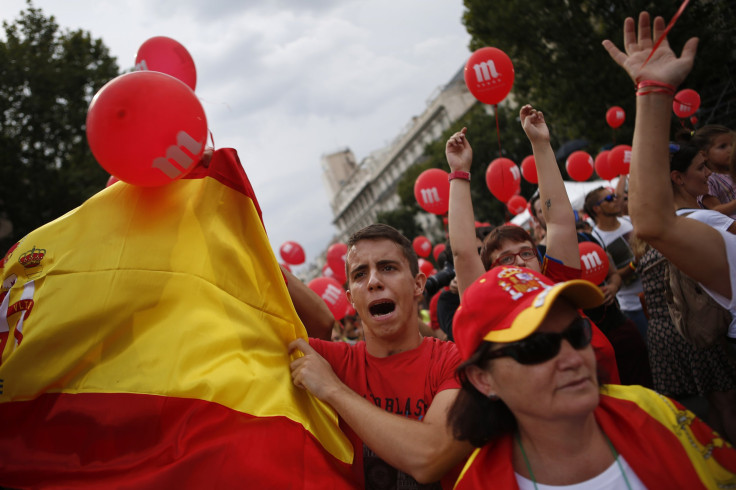Barcelona 2022? City Announces Olympics Bid Day After Madrid Looses 2020

Less than 24 hours after Madrid lost its bid to host the 2020 Summer Olympics in a disappointing first round defeat, Barcelona announced that it was preparing its own bid for the 2022 Winter Olympics.
“We have everything ready. The dossier is ready,” Barcelona Mayor Xavier Trias told a local radio station on Sunday. “We need to speak with the Spanish Olympic Committee to see if they are ready to go forward with this venture.”
Trias said Barcelona had been waiting to announce its potential bid until the International Olympic Committee chose the 2020 host this past weekend. That honor went to Tokyo, leaving Spain in dismay after Madrid’s third failed attempt at securing the Summer Olympics.
Trias boasted to local radio station RAC1 that, “in Spain, only Barcelona could compete with Tokyo and Istanbul.” The mayor added that the Barcelona brand was “stronger than Istanbul and almost as strong as Tokyo.”
Sunny Barcelona burst onto the global travel map in the mid-1990s after it hosted a hugely successful 1992 Summer Olympics. The city used the event to completely reinvent its seafront, revitalize its run-down neighborhoods, invest in transportation and transform its overall infrastructure. The resulting city emerged from postindustrial grit anew, transformed into one of the world’s leading tourist destinations thanks to its Olympic spotlight.
In its latest attempt at Olympic glory, the city said it would present a “Barcelona-Pyrenees” bid, with the nearby mountains serving as the alpine venue and the greater metropolitan area serving as the event base with stadiums and the attendant facilities.
The previous mayor of Barcelona, Jordi Hereu, actually announced plans to bid for the 2022 Winter Olympics in 2010, before Madrid announced its own ambitions for the 2020 Summer Olympics. Plans were then put on hold pending the outcome of the IOC meeting in Buenos Aires on Saturday. All involved in the Barcelona bid threw their support behind Madrid in the run-up to this past weekend’s vote.
Like Madrid, Barcelona says it has a large amount of infrastructure already in place. And like Madrid’s bid, Barcelona is likely to face a rash of questions relating to Spain’s recent doping scandals and its dismal economic situation. The nation’s overall public debt stands at $1.2 trillion -- or about 88 percent of its entire annual economic output -- while more than 25 percent of working-age adults remain unemployed.
Santi Vila, Catalonia’s head of sustainability and territorial policy, explained on Monday that the city had the experience of hosting the World Swimming Championships this past summer, “which showed you don’t have to spend a lot of money.” Vila added that the transport connection between Barcelona and Puigcerda in the Pyrenees would need to be improved, but said the Olympics would give the project a sense of urgency.
The only confirmed candidate for 2022 is Almaty, the former capital of Kazakhstan and host of the 2011 Winter Asian Games. Munich, which lost to Pyeongchang in the 2018 race, will hold a referendum in November to decide if the German city will try anew.
Residents in Oslo, meanwhile, cast votes on Monday in a referendum of their own over whether the city should apply to host the 2022 Games. Preliminary results late Monday night suggested that residents were largely against the idea. A joint Polish/Slovakian venture and a possible Ukrainian bid are also expected before the International Olympic Committee deadline of Nov. 14. The Committee will announce the ultimate winner at a meeting in Kuala Lumpur in July 2015.
© Copyright IBTimes 2025. All rights reserved.






















